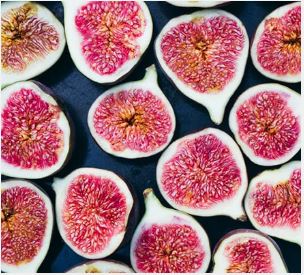Reasons Pregnant Women Should Eat More Figs! Top 5 health benefits a Dr. Sebi Approved Alkaline Fruit

10 Reasons Pregnant Women Should Eat More Figs!
Figs are one of the oldest cultivated fruits around, dating back to at least 5,000 B.C. Revered since ancient times for their aphrodisiac properties, in many cultures figs are considered a symbol of fertility: split apart, they are said to resemble the female genitalia, left whole, the male genitalia. In fact, the Ancients thought the milky-white substance (actually a natural latex) which drips from the cut stem represented the universal energy and it was used to treat infertility and promote healthy lactation. However, there seems to be some truth to the lore. Here are ten fascinating facts about these nutritional powerhouses that make them an incredible addition to anyone diet, but particularly to the pregnant woman
- Figs have a higher overall mineral profile than any other common fruit or vegetable. They are particularly high in calcium, iron, potassium, and zinc, key nutrients for a healthy pregnancy.
- The high potassium content of figs may help to control blood pressure and therefore, the hypertension associated with preeclampsia, a dangerous pregnancy condition.
- The mineral content of figs closely resembles that of human breast milk!
- Figs have the highest fiber content of any common fruit. Rich in both insoluble and soluble fiber, figs really help to mitigate the constipation so common during pregnancy.
- Figs contain a proteolytic enzyme that also aids in digestion, which is naturally slowed during pregnancy.
- Figs are highly alkaline, and therefore alkalizing, which has been shown to help curb cravings. This may help control those less-than-healthy urges that can sabotage a healthy pregnancy diet.
- Figs are high in vitamin B6, which has long been thought to be beneficial in alleviating morning sickness.
Even the leaves of figs are therapeutic: ingesting them has been shown to reduce and even eliminate the need for insulin in diabetic patients. Therefore, ingesting them may help to control or avoid a case of gestational diabetes. Furthermore, this ability to balance blood sugar levels should help to relieve a whole host of symptoms from morning sickness to mood swings.
Dried figs contain significant amounts of Omega-3 fatty acids, which are essential to the optimal development of the fetus. Consuming ample Omega-3 during pregnancy is also associated with a lower incidence of pre-term labor and premature delivery.
Psoralens, a chemical found in figs, has been used to treat many skin pigmentation problems and may be beneficial in preventing melasma, the mask of pregnancy.
Top 5 health benefits
1. Promotes digestive health
Figs are often recommended to nourish and tone the intestines, they act as a natural laxative because of their high fiber content. The fiber they provide also has prebiotic properties, feeding the gut bacteria and promoting a healthy gut environment which as a result improves digestive wellness.
2. Rich in antioxidants
Figs, especially ripe ones, are rich in protective plant compounds called polyphenols. These compounds have protective antioxidant properties, this means they help prevent oxygen from reacting with other chemicals and causing damage to cells and tissues, by so doing they are key to managing oxidation.
3. May support healthy blood pressure
Many of us consume too much sodium (salt), which is found in processed foods. High intakes of sodium can lead to deficiencies of potassium and this imbalance may lead to high blood pressure (hypertension). A diet rich in fruit and vegetables, including fresh figs, naturally increases potassium levels and is therefore encouraged to help manage blood pressure.
A study examining the specific effects of fig extract in animals showed reductions in blood pressure for those with normal as well as hypertensive readings.
4. May support bone health
Figs are a good source of bone-friendly minerals including calcium, magnesium and phosphorus. Figs are especially rich in calcium with some studies suggesting they contain 3.2 times more than other fruits.
Being a good source of potassium may help to counteract the urinary excretion of calcium, caused by a high salt diet. This in turn helps to keep calcium in bones and as a result may lessen the risk of osteoporosis.
5. May improve diet quality and aid weight management
Naturally high in dietary fiber and packed with vitamins and minerals, figs may be a useful dietary inclusion to improve the nutritional density of your diet and in turn help with weight management. High fiber foods provide feelings of fullness and can reduce hunger and cravings whilst key nutrients improve blood management.



Leave a Comment